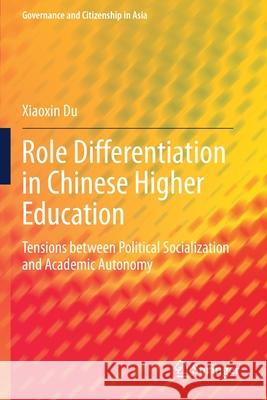Role Differentiation in Chinese Higher Education: Tensions Between Political Socialization and Academic Autonomy » książka
topmenu
Role Differentiation in Chinese Higher Education: Tensions Between Political Socialization and Academic Autonomy
ISBN-13: 9789811583025 / Angielski / Miękka / 2021 / 196 str.
Role Differentiation in Chinese Higher Education: Tensions Between Political Socialization and Academic Autonomy
ISBN-13: 9789811583025 / Angielski / Miękka / 2021 / 196 str.
cena 523,30
(netto: 498,38 VAT: 5%)
Najniższa cena z 30 dni: 501,19
(netto: 498,38 VAT: 5%)
Najniższa cena z 30 dni: 501,19
Termin realizacji zamówienia:
ok. 16-18 dni roboczych.
ok. 16-18 dni roboczych.
Darmowa dostawa!
Kategorie:
Kategorie BISAC:
Wydawca:
Springer
Język:
Angielski
ISBN-13:
9789811583025
Rok wydania:
2021
Ilość stron:
196
Waga:
0.28 kg
Wymiary:
23.39 x 15.6 x 1.07
Oprawa:
Miękka
Wolumenów:
01
Dodatkowe informacje:
Wydanie ilustrowane











